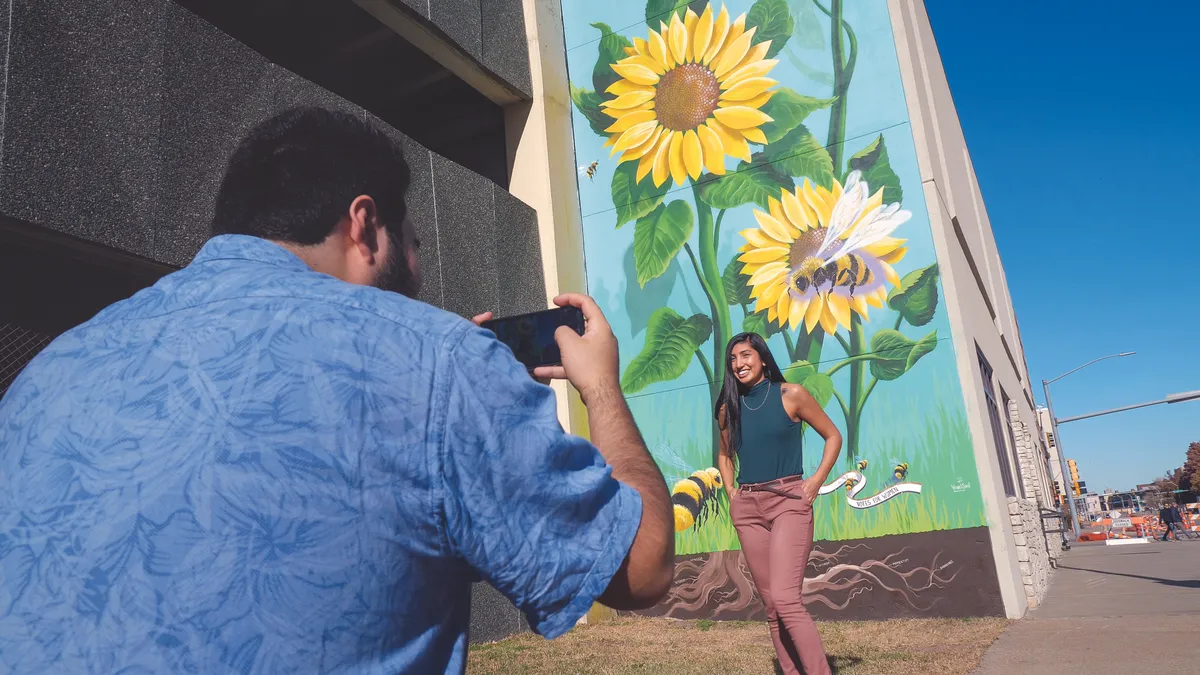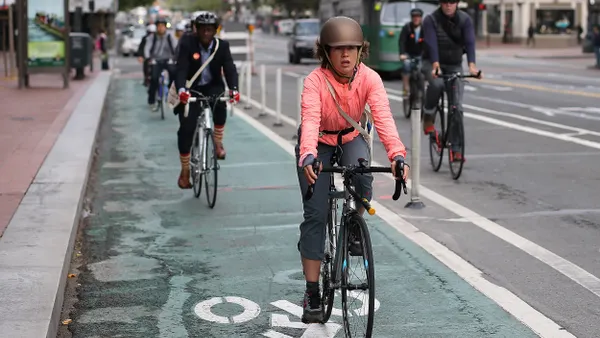Dive Brief:
- Airbnb expanded its "Try Before You Buy" program earlier this month, partnering with remote worker relocation initiatives across the country, from Arkansas to Michigan, to provide discounts to individuals seeking to visit a city before they move.
- The initiative started with Tulsa Remote, a program that provides $10,000 grants to entice remote workers to move to Tulsa, Oklahoma, which provided participants with $150 Airbnb gift cards.
- Airbnb has now expanded the program to work with Ascend West Virginia, Choose Topeka, Finding Northwest Arkansas, Live + Work in Maine, Move to Michigan, P33 in Chicago, Remote Shoals in Northwest Alabama and Remote Tucson.
Dive Insight:
The pandemic sparked a busy year for remote worker relocation programs. Tulsa Remote brought in at least three times as many participants in 2020 compared with 2019. It also saw a 36% increase in applications last fall, with nearly 600 of those applicants coming from California's Bay Area.
Meanwhile, Choose Topeka has received over 5,000 applications since the program began in December 2019, and about half of those applicants had ever been to Topeka before, according to Bob Ross, senior vice president of marketing and communications for the Greater Topeka Partnership.
Forty-seven percent of U.S. residents are interested in "trying out" a new city before they purchase a home, according to a recent Airbnb survey.
While these programs are beneficial to remote workers seeking to move to a new city amid the pandemic, it also is a way for Airbnb, which went public in December 2020, to partner with local economies, according to Airbnb spokesperson Liz DeBold Fusco.
The Choose Topeka relocation program, which provides up to $15,000 for individuals to move, generated $3.2 million in regional economic impact. That initial payment generates roughly 10 times the return on investment for the local economy per individual over the course of a year, according to Ross.
In September 2020, Airbnb launched a separate effort that aims to show its value to cities. Its City Portal dashboard provides local governments and tourism agencies with more insight into local Airbnb listings and activity, potentially helping some cities boost tourism spending. The company has previously said that its tax agreements have made it easier for local jurisdictions to collect tax revenue from Airbnb rental income.
While the pandemic has been tough on some major tourism economies — and on some Airbnb hosts — the portal could help some smaller and more rural cities leverage new financial opportunities, as travel patterns changed and people sought more rural destinations. The dashboard can provide macro- and micro-level data on who's traveling, what neighborhoods they're staying in, how much they're spending and where they're spending, Airbnb Senior Vice President for Global Policy and Communications Chris Lehan said in an earlier interview.











